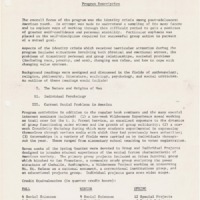Individual In America
Item
- Title
- Identifier
- Source
- Date Created
-
Eng
Individual In America
-
Eng
1976-32_ProgramHistories_8D24_09_01
-
Eng
1976-32
-
Eng
8D24
-
Eng
9
-
Eng
1971-1972
Position: 3030 (1 views)
